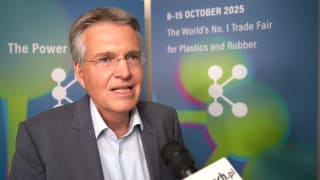Market-driven project partnership
Kraiburg TPE partnered with LWB Steinl GmbH, based in Altdorf near Landshut, Germany, to ensure stable processing of the new AD/EPDM/UV compounds through a thorough investigation of their processability.LWB Steinl is one of world’s leading global manufacturers of vertical transfer molding presses and horizontal injection molding machines for rubber and TPEs. Its range of products includes versions with a clamping force of 200 to 16,000 kN and energy-efficient injection units for injection volumes of 50 to 30,000 cm³. A vertical machine without tie bars was used for the tests performed in the manufacturer’s processing laboratory. The test tool was delivered by PFAFF Werkzeug- und Formenbau from Röthenbach, Allgäu, Bavaria.
The economic processing of EPDM/TPE components with a vertical machine has the advantage that it saves space for feeding and downstream machinery. However, it also requires particularly carefully coordinated process controlling of the materials used. The special TPE formulation makes it possible to minimize the hold pressure in order to avoid deformation of the EPDM workpiece.
Although it might seem like a good idea to make the corner and end parts of the automotive sealing profiles out of EPDM as well, as with the window trims etc., that would result in longer cycle times due to the rubber’s crosslinking and would require more complex machines and processing steps.
Shorter cycle times
Increased process stability means lower scrap rates and is one of the most important factors for economically produced two-component parts. Reducing the typical cycle time for TPE injections into inserted EPDM workpieces was therefore an additional goal for the partners involved in the project.
Kraiburg TPE’s new EPDM adhesion compounds also feature economical processing. They are processed at relatively low temperatures of 200 °C to 220 °C. This results in lower cooling times, which, in combination with the minimized hold pressure time, accelerate the cycle and thus the overall production process as well. Along with these properties, the initial adhesion of the specially developed TPE compounds to EPDM materials ensures that the finished parts can be removed from the mold more easily and thus also reduces the cycle times.
Together with LWB Steinl we have managed to optimize the material and process technologies in such a way that they meet the requirements of different automotive window systems. The permanent adhesion and weathering resistance of the materials is not impaired.
In addition to comprehensive customer support, KRAIBURG TPE also offers custom-engineered color balancing, taking into account the gloss level, relative to the individual EPDM or the OEM’s color specification.



